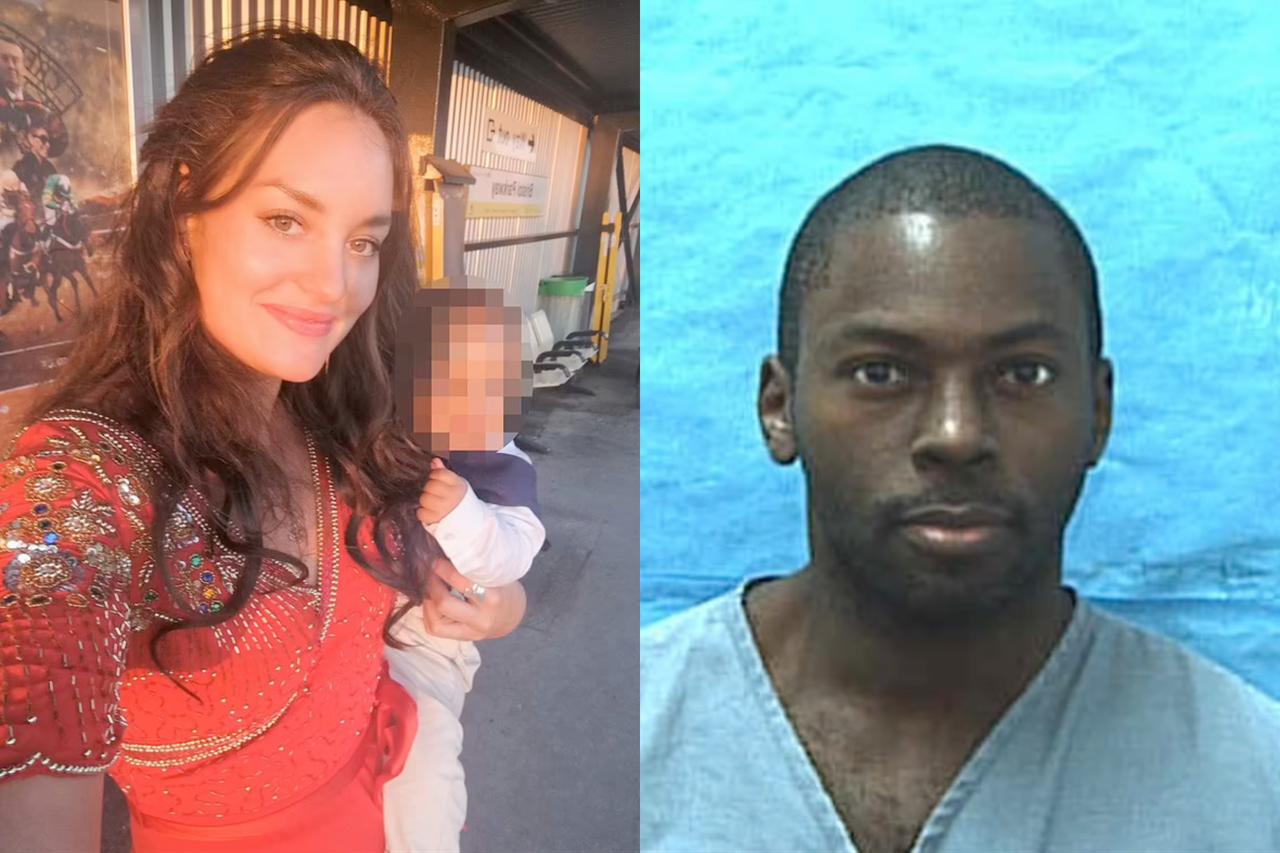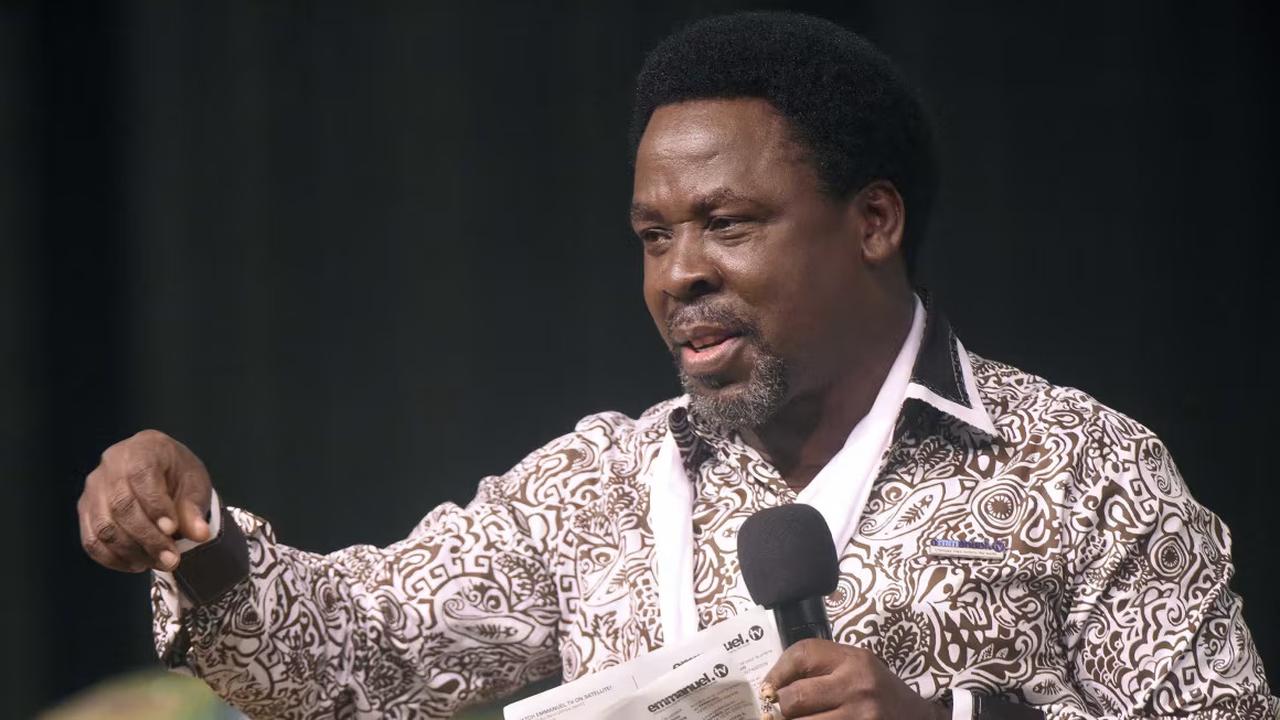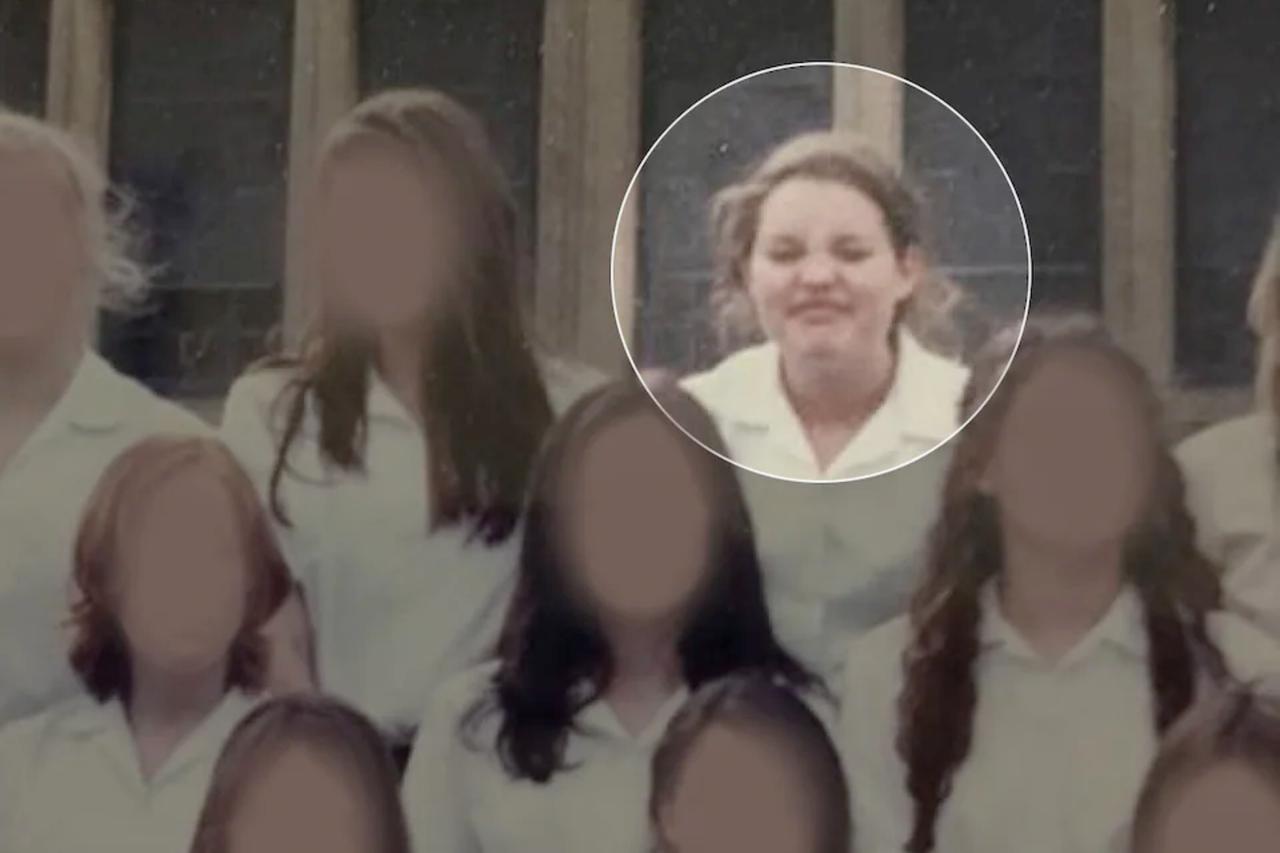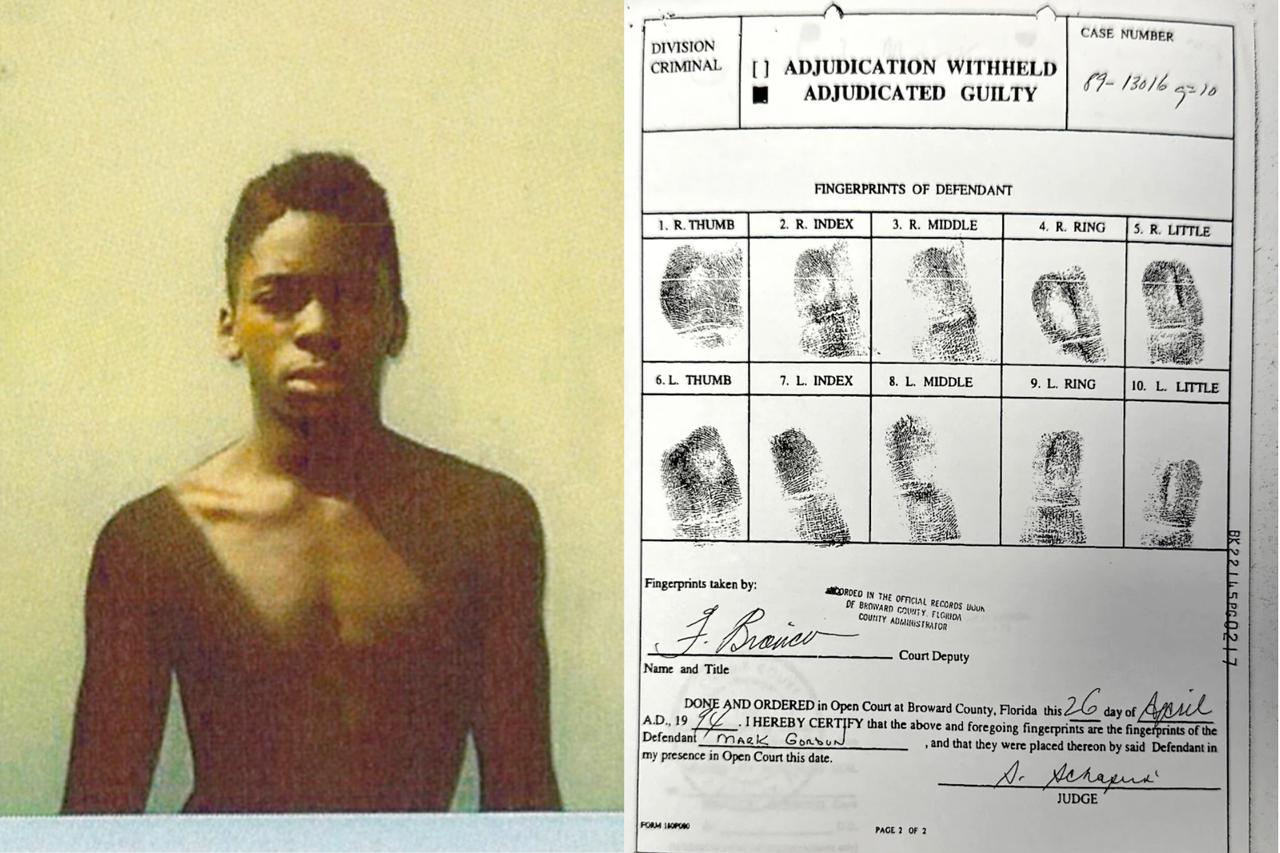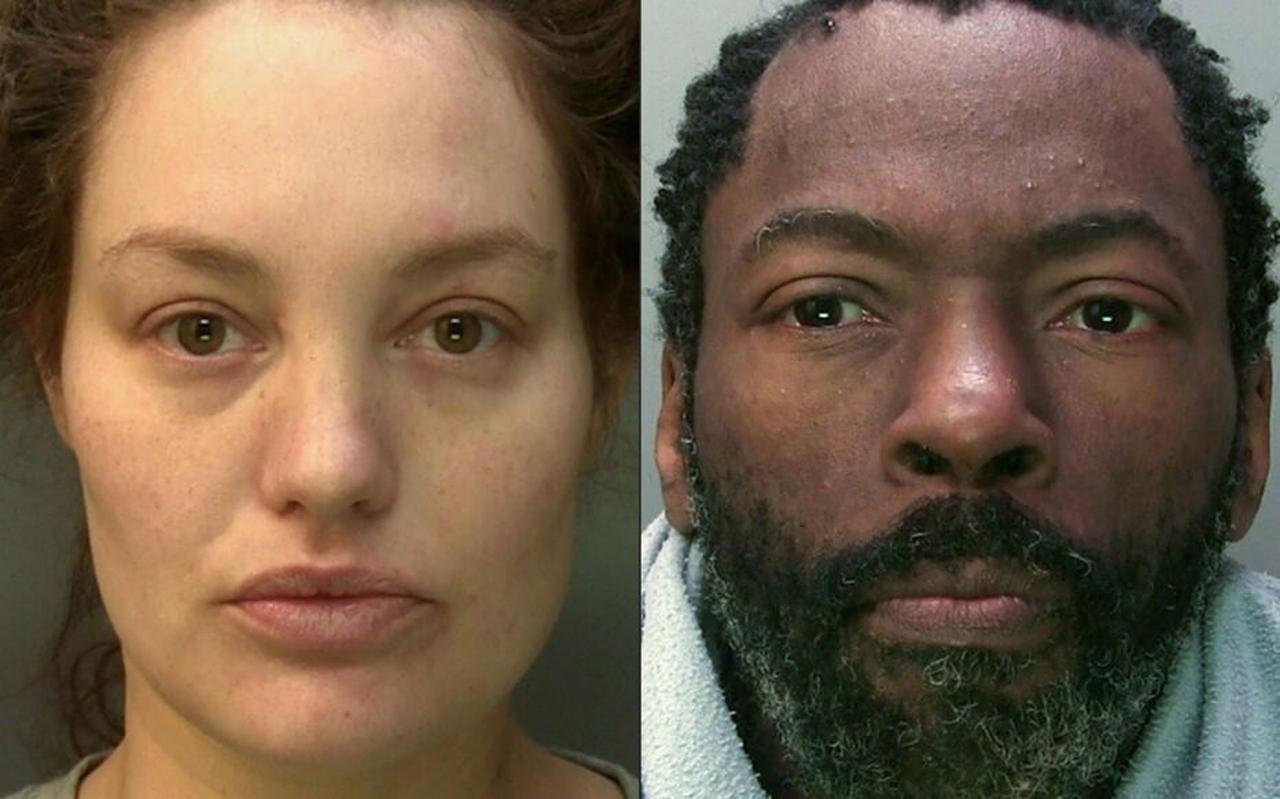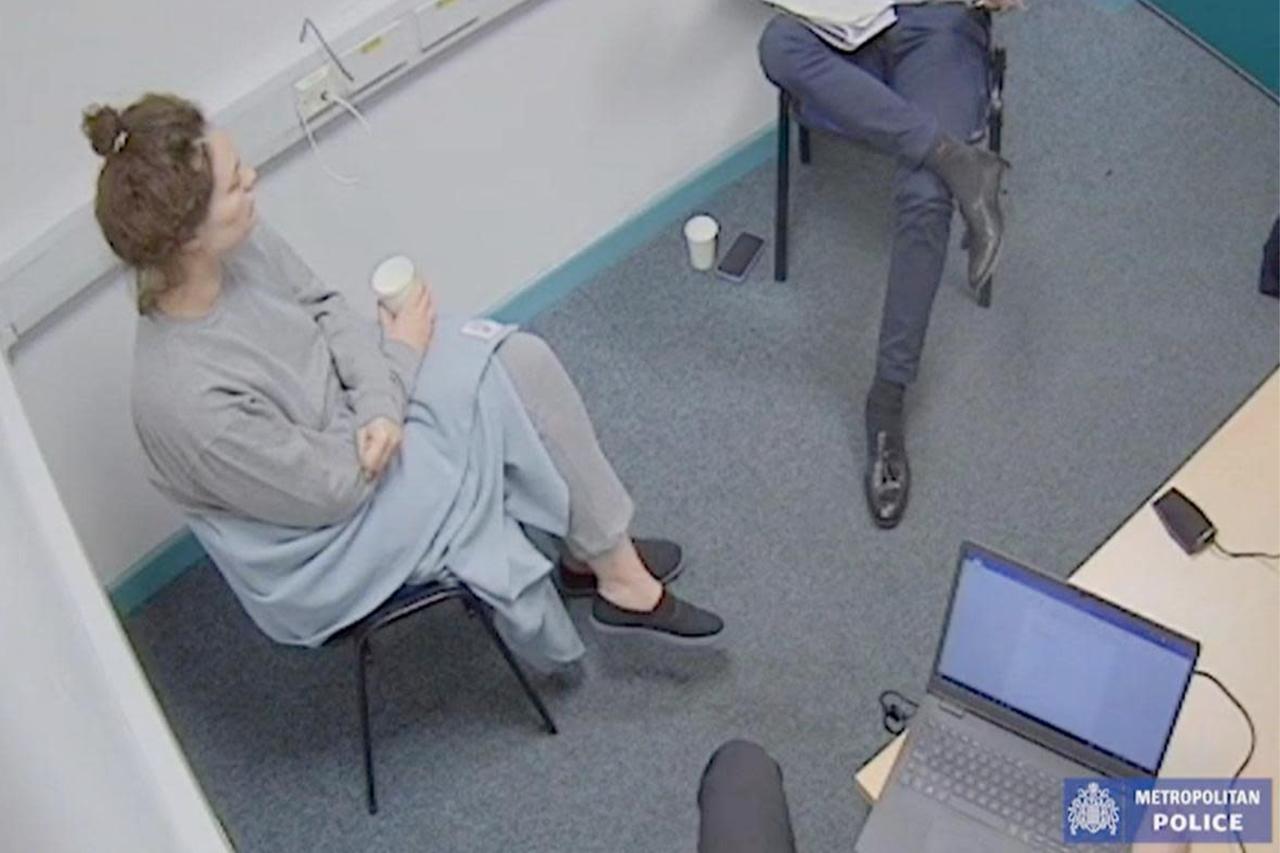On Monday, Constance Marten and Mark Gordon were unanimously found guilty of the manslaughter of their newborn daughter, Victoria, whose decomposed body was discovered in a plastic bag in a Brighton allotment shed in March 2023.
The couple had already been convicted of child cruelty and concealing the birth of a child in an earlier trial, but a retrial was required for the most serious charges.
- Marten, 38, and Gordon, 51, were found to have exposed their baby to deadly conditions by living off-grid in a tent during the freezing winter of early 2023, as reported by the BBC.
- The prosecution argued that they had chosen to evade social services after the removal of their four other children, believing the state would again intervene.
While the trial focused on Marten’s behaviour as a mother, the story behind her actions is far more complex, involving long-term trauma, coercion, and systemic failure.
A minibus drives by as church members gather at the main gate of The Synagogue Church of All Nations (SCOA) headquarters to mourn the death of late Nigerian pastor TB Joshua, Lagos, Nigeria, June 6, 2021. (AFP Photo)
Constance Marten’s cult trauma, fear of institutions
The roots of Marten’s distrust in institutions trace back to her time as a teenager at the Synagogue, Church of All Nations (SCOAN), a Nigerian Christian megachurch led by TB Joshua.
Key facts from her time at SCOAN include:
- Marten was sent to SCOAN by her mother in 2006, at the age of 19, and remained there for four months while her mother returned to the U.K.
- As reported by the BBC, she lived in crowded dormitories, was reportedly forced to eat the leader’s leftovers, and was punished for not showing enough devotion.
- She was reportedly required to undress without privacy and was excluded socially for perceived disobedience.
- Although there is no direct evidence she was physically abused, Marten later described the experience as traumatizing, privately stating, as reported by the BBC: “It's taken me years to get back to normal.”
- Friends observed she had changed upon returning from Nigeria, appearing confused, withdrawn, and psychologically affected.
Nigerian pastor TB Joshua pictured at The Synagogue Church of All Nations (SCOAN), which he founded, Lagos, Nigeria, December 2014. (AFP Photo)
Further evidence of long-term trauma:
- Former disciple Joe Hurst recounted to the Mirror that Marten later reached out to him, interested in making a documentary about the church, but also describing episodes of psychosis and spiritual distress.
- Marten told Hurst and others she had experienced visions and sensations she could not control, culminating in a public collapse, as reported by the Mirror.
- In messages to a former fellow disciple named Angie, Marten said she could not speak about what happened to secular friends for fear they would consider her delusional, as reported by the BBC.
- Cult expert Alexandra Stein told The Independent: “I’m sure she would have been brainwashed in SCOAN, that’s what these guys do. People coming out of cults are traumatized, and there’s not a lot of support. It’s also very stigmatized. It’s a difficult thing for anyone to say ‘I’ve been in a cult.’”
These accumulated experiences left Marten estranged from her family, reluctant to engage with official bodies, and increasingly suspicious of the state. Her failure to trust institutions, which later played a central role in the trial, cannot be understood without this formative chapter.
Constance Marten makes a playful grimace during a photoshoot at St Mary’s Shaftesbury, the elite Catholic boarding school she attended in Dorset, United Kingdom. (Photo via Facebook)
All about Constance Marten’s aristocratic family background
Marten’s upbringing added another layer of contradiction. Born into aristocratic privilege, she was the daughter of Napier Marten, a former royal page whose mother was a goddaughter to the Queen Mother.
- Constance attended St. Mary's Shaftesbury, a private school costing £30,000 (over $40,000) a year
- She later studied Arabic and Middle Eastern Studies at the University of Leeds
- In 2008, she was featured as "babe of the month" in Tatler magazine
- Her relationship with her family was reportedly fraught
- Her father had left home for a spiritual quest when she was a child
- Constance's mother remained connected to the SCOAN church even after her daughter's distressing experience there
According to court reports, Marten accused her family of having tracked her with private investigators, a claim confirmed in court, although the investigators denied interference.
She stated that her family disapproved of her relationship with Gordon and that this exacerbated her mistrust.
“There are people in my biological family that see me as an embarrassment,” she told the Guardian. “Some people from privilege work on a different set of rules. They think they're above the law.”
Mark Gordon at age 14 (left) and fingerprint records (right) related to his violent rape and kidnapping conviction in 1989 in Florida, United States. (Photo via Broward County Court records)
Mark Gordon’s criminal past, role in child manslaughter case
Constance Marten met Mark Gordon in 2014. By then, she had distanced herself from her family, friends, and institutional structures.
- Gordon, a convicted rapist who had spent two decades in American prisons, was described in the family court ruling as having committed violent sexual offences at the age of 14
- In 2019, Marten suffered a ruptured spleen during pregnancy, and paramedics were reportedly denied access by Gordon
- Although no charges were filed, the family court cited this incident among the reasons for removing the couple's children
Gordon's role in Victoria's death was not given equal attention in the public discourse. Both parents were found guilty, yet media headlines overwhelmingly described the case as a "mother who killed her child" or "killer mother".
This framing risks ignoring the coercive dynamics at play.
In one of her interviews, Marten claimed Gordon had instructed her to say that Victoria had died of cot death instead of revealing that she had fallen asleep on top of the baby. “He may try to say that but that isn’t what happened,” said Marten as reported by the Guardian.
Constance Marten (left) and Mark Gordon (right) will face their sentences in September, London, United Kingdom, July 14, 2025. (AFP Photo/Metropolitan Police)
Inside Mark Gordon, Constance Marten trial for child manslaughter case
The courtroom proceedings during Mark Gordon and Constance Marten’s trial were turbulent and often marked by emotional and procedural breakdowns.
Key moments and observations:
- Marten frequently missed sessions, citing exhaustion and illness. On multiple occasions, she refused to attend court or appeared by video link.
- At one point, she breached a reporting restriction by referencing Gordon’s rape conviction before the jury.
- Gordon later dismissed his legal team and chose to represent himself, directly cross-examining Marten.
- Their interactions in court were at times cooperative and at other times strained, as described in the Guardian's courtroom reporting.
Emotional and psychological responses:
- Marten described feelings of fear, confusion, and grief, particularly regarding the birth and death of Victoria.
- She explained that after losing her previous four children to social services, she believed authorities would again remove her baby.
- She said she fled to avoid what she saw as inevitable separation. She also told the court she held her child’s body for some time after finding her unresponsive.
Broader implications:
- The couple’s actions, including their refusal to engage with services and repeated absences, were interpreted in court as defiance.
- However, these behaviours may also reflect trauma, deep mistrust, and psychological deterioration.
- The family court had previously concluded that the pair prioritized their relationship over their children, a dynamic that also reflected longstanding patterns of isolation and co-dependency.
- The courtroom became a stage where two deeply broken individuals confronted the very system they had spent years avoiding. While the verdict ultimately held them accountable, the process revealed a more complicated and painful story.
Constance Marten being interviewed by police in London, United Kingdom, March 1, 2023. (Photo by Metropolitan Police)
What Constance Marten verdict, trial coverage overlooks
The verdict was clear: Marten and Gordon were guilty of gross negligence. However, the case raises broader questions.
Why was there no mental health intervention after Marten’s return from SCOAN? Why did her family’s wealth and access not secure long-term care or stability? Why was Gordon, with a documented history of violence, allowed repeated contact with Marten and their children?
Perhaps most troubling is how consistently the story has been reduced to the trope of the monstrous mother. Marten's emotional instability, background, and actions certainly demand scrutiny. Viewing her solely as a killer ignores the systemic neglect, the predatory environments she passed through, and the coercive influence of her partner, Mark Gordon.
In the end, an innocent child is dead. To stop the conversation there is to overlook the decades that led to that moment. Constance Marten was not only a mother who failed. She was also failed: by a cult, by her family, by the state, and by the systems meant to recognize when someone is breaking.
July 16, 2025 03:51 PM GMT+03:00
